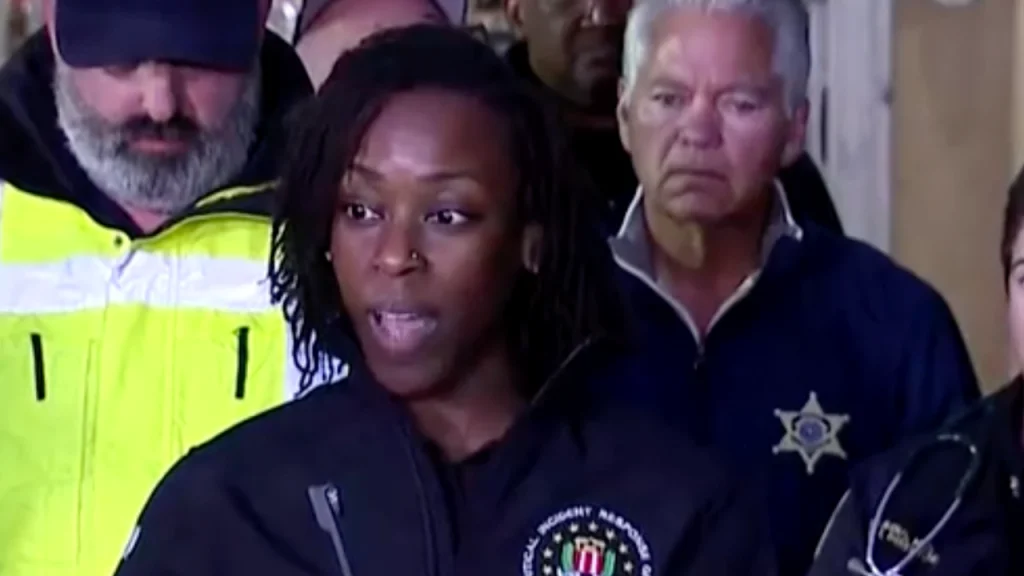The New Year’s Day attack in New Orleans, which saw a truck plow into a crowd of revelers on Bourbon Street, has sparked controversy and criticism surrounding the FBI’s initial handling of the investigation, particularly concerning the conflicting statements made about the nature of the incident. The incident, perpetrated by 42-year-old Army veteran Shamsud-Din Jabbar, resulted in multiple casualties and injuries, raising immediate concerns about potential motives. Assistant Special Agent in Charge Alethea Duncan, during the initial press conference, declared the attack “not a terrorist event,” contradicting Mayor LaToya Cantrell’s simultaneous assertion that the city had suffered a terrorist attack. This discrepancy created confusion and fueled public scrutiny of the FBI’s assessment.
The FBI’s subsequent response and revised statements further complicated the matter. While Duncan’s initial statement dismissed terrorism, the FBI later issued three separate statements on the day of the attack, all classifying the incident as an act of terrorism under investigation. This stark contrast between the initial assessment and the subsequent official statements raised questions about internal communication and the basis for Duncan’s initial claim. Moreover, Duncan later acknowledged in subsequent press conferences that the attack was indeed being investigated as an act of terror, aligning with the FBI’s official position but further highlighting the initial misstep. The discovery of an ISIS flag in Jabbar’s truck added another layer to the evolving narrative, prompting the FBI to confirm that Jabbar was “inspired” by ISIS, although no evidence of direct orders from the terrorist group has been found.
The conflicting statements and the evolving understanding of Jabbar’s motives have opened the FBI to criticism from various quarters, including conservative lawmakers, Trump allies, and members of the public. The criticism focuses on the apparent disconnect between Duncan’s initial assessment and the subsequent information released by the FBI, raising concerns about the agency’s internal communication, investigative processes, and overall handling of the incident. Some critics have suggested that the FBI’s focus on diversity, equity, and inclusion (DEI) initiatives may have detracted from its core mission of counterterrorism and crime prevention. This argument points to a potential shift in priorities within the agency that could have compromised its ability to accurately and effectively assess the threat posed by the New Orleans attack.
Adding to the complexity of the situation is the FBI’s silence regarding potential disciplinary actions against Agent Duncan. Fox News Digital’s repeated attempts to contact the FBI press office for clarification on whether Duncan would face consequences for her initial mischaracterization of the attack went unanswered. This lack of response has further fueled speculation and criticism, with some questioning the agency’s transparency and accountability in the face of public scrutiny. The unanswered inquiries also contribute to a perception of potential internal discord or a reluctance to address the controversy directly, which could further erode public trust in the agency.
The broader context of recent FBI controversies under the Biden administration adds another layer to the criticism surrounding the New Orleans incident. Several high-profile scandals and missteps have plagued the agency, leading to questions about its leadership, integrity, and effectiveness. These prior incidents create a backdrop against which the New Orleans attack is viewed, potentially exacerbating existing concerns about the agency’s performance and raising questions about whether the issues are systemic. The lack of a clear and decisive response to the Duncan situation, particularly in light of these previous controversies, could be interpreted as a reluctance to address internal problems and further erodes public confidence in the agency.
The New Orleans attack and the subsequent controversy surrounding the FBI’s response highlight the critical importance of accurate and timely information in such sensitive situations. The conflicting initial statements created confusion and fueled speculation, undermining public trust and raising concerns about the agency’s competency. The FBI’s silence regarding potential disciplinary actions against Agent Duncan further compounds the problem, contributing to a perception of lack of accountability and transparency. Moving forward, the agency must prioritize clear communication, thorough investigations, and a demonstrable commitment to addressing internal issues to rebuild public trust and ensure its effectiveness in protecting national security.

